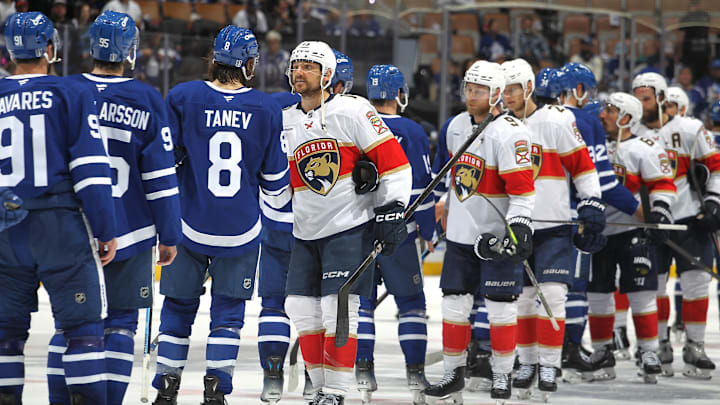The NHL has long faced criticism for its revamping of the playoff structure 12 years ago, as both players and fans alike have called for the old format to make a comeback. Seeing the same matchups year after year is growing tiresome, and having top contenders knocked out early because of an unfavorable matchup makes for dull hockey as the playoffs progress.
For 20 years, the NHL had a foolproof playoff format: the top eight teams from each conference got a ticket to the postseason, and the highest-ranked club would play the lowest team. This was introduced in 1993, as the NHL began to move away from the old system based on divisions.
But in 2013-14, the decision was made to drop the conference-based structure and return to a divisional seeding process. At that time, the NHL realigned its divisions to accommodate easier travel and with that came the new playoff format.
This structure sees the top three teams from each division automatically make the playoffs, with two extra wild card spots for the next best teams in the conference.
But under this format, high-powered teams are more likely to be eliminated early, leaving weaker matchups for the later rounds in the playoffs. For the sake of intensity and parity in every round, the old format is highly preferable.
What would this year's playoffs look like under the old format?
If the NHL still had a 1 through 8 seeding system, some of this year's matchups would remain the same but there would still be some game-changing differences.
For starters, the current Eastern Conference Final matchup between the Carolina Hurricanes and Florida Panthers would have taken place in the first round. With the way the Canes are being throttled, it would have revealed the team's weaknesses much sooner, paving the way for a more evenly-matched ECF.
That's one of the key problems under this structure. The Tampa Bay Lightning finished with the third-highest point total in the conference, yet were bounced by the Panthers in the opening round. That could easily have been an ECF had the Lightning had a more favorable matchup against the Ottawa Senators.
"You see LA-Edmonton every year in the first round. Is that really good for the league?"Forward Gabriel Vilardi to The Guardian
Out west, the fourth straight rematch between the Edmonton Oilers and Los Angeles Kings in the first round would have never occurred. In fact, none of those four meetings from 2022 through this year would have taken place in Round 1 if the NHL still used the old format.
Instead, the current Western Conference Final would have gone down in the first round with the Oilers playing the Dallas Stars, while the Kings and Colorado Avalanche would be facing off in the opening round.
It was cool at first, but seeing the same two clubs battle it out over and over simply because they play in the same division is getting old.
How do the players feel?
In a poll of 31 players back in 2019, 15 said they would prefer the conference-based structure over the current one. CBC did a fantastic article that year that dives deep into the pros and cons of both playoff formats, and many players at the time shared their opinions on whether to revert back to the old system.
"It's kind of tough the fact that a lot of good teams are going out first or second rounds," said former NHLer David Savard. "I think maybe we need to look back at maybe 1 against 8 and play that format."
That brings up memories of the 2017 playoffs, when the Pittsburgh Penguins and Columbus Blue Jackets met in the first round. Those teams finished second and third in the NHL during the regular season, and when the Penguins won that series, they were forced to play the President's Trophy winners, the Washington Capitals. Two of the three best teams in the NHL were gone by the ECF thanks to the divisional format.
Sportsnet also looked into this conundrum, with Sidney Crosby explaining why he preferred the traditional seeding method.
"I like 1-to-8 just because I think the regular season is as difficult as it is, teams should be rewarded," Crosby said. "That's probably the best way to be rewarded, even though there isn't a ton of difference. I like that version a little bit better."
At that time, commissioner Gary Bettman said that two-thirds of general managers voted to keep the current system. As recent as this year, Bettman firmly stated that there is no consideration to revert back to the old ways, so we likely won't be seeing it change anytime soon.
I asked Gary Bettman whether he envisioned talking to the NHLPA about changing the playoff format in upcoming CBA talks, going back to the old 1 vs 8, 2 vs 7 etc format. An empathic No from the commissioner. He likes the format the way it is now.
— Pierre LeBrun (@PierreVLeBrun) March 19, 2025
